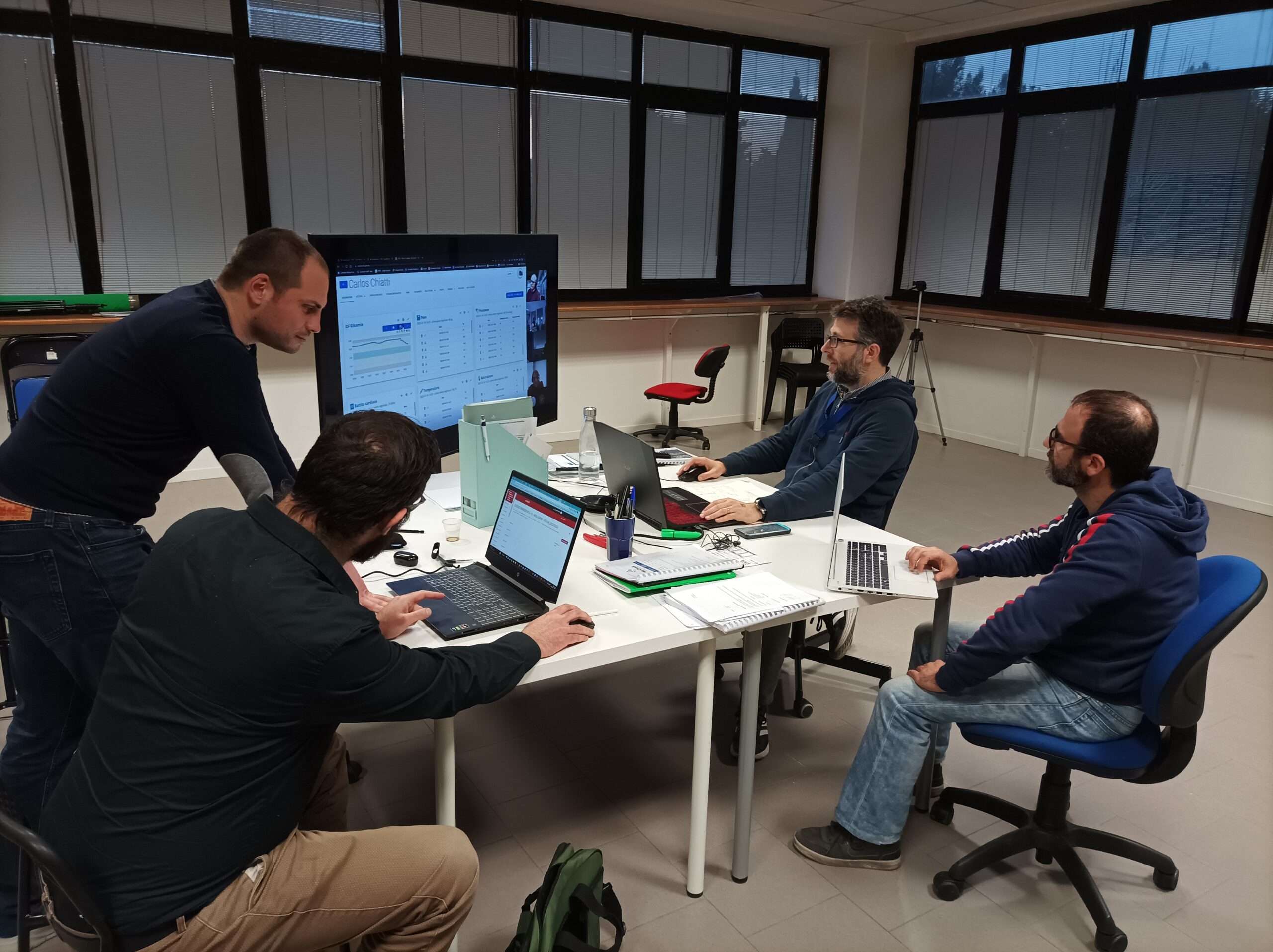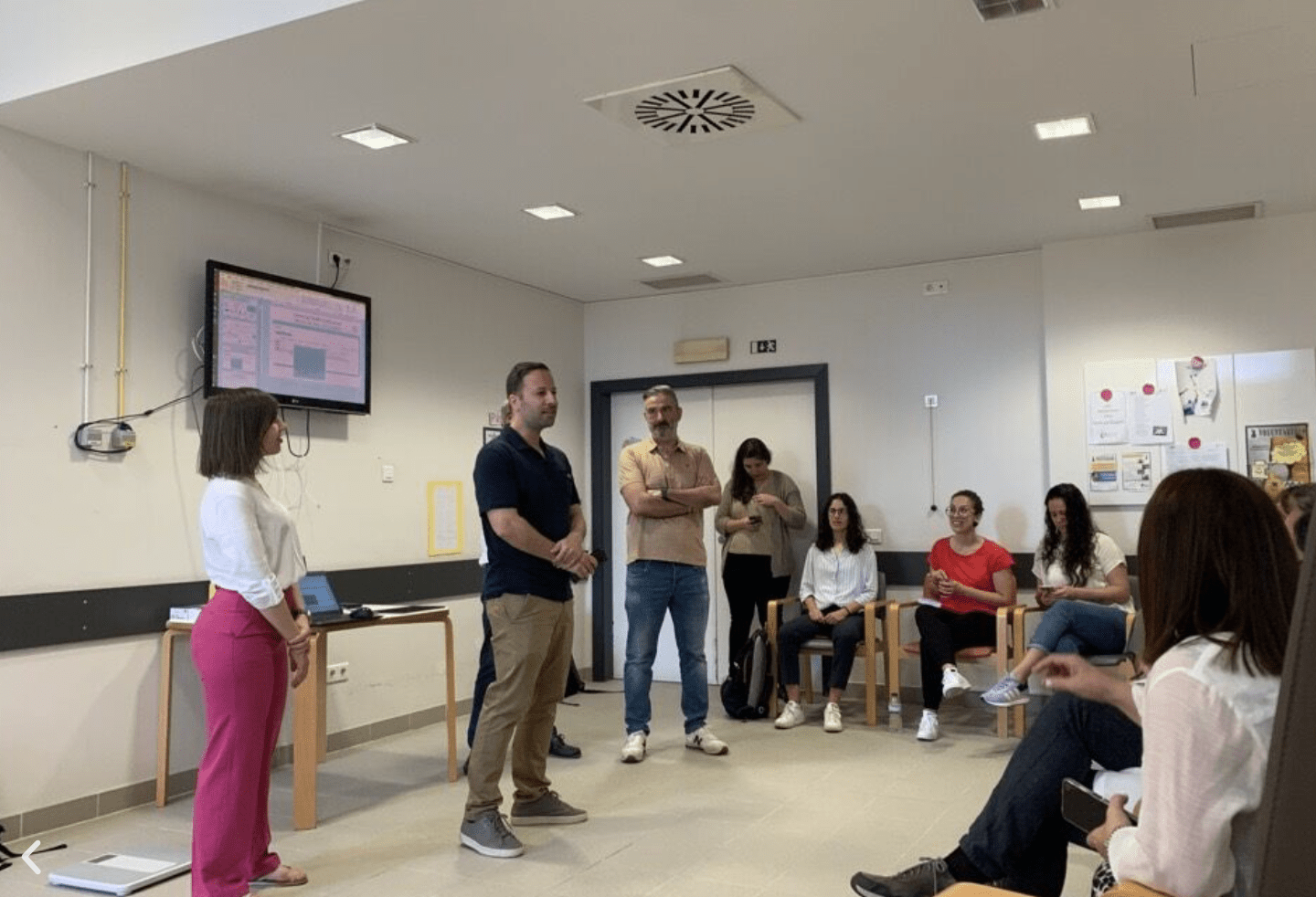The INCAREHEART project is now well underway and our suppliers are actively building out their solutions and engaging with stakeholders. As they carry out their prototype testing, we asked them a few questions about how their work is going. Here, the CardioCare team, led by Gesan, tell us about their solution.
Why did you want to take part in the INCAREHEART project?
All partners of the CardioCare consortium have already taken part in various projects that address chronic diseases and cardiovascular conditions. All consortium members and participating project staff already had a wide range of solutions and designs in mind that would help to solve the existing challenges in chronic heart failure treatment and management by using e-health solutions. Moreover, as people age, many of our staff or their loved ones have become at risk of developing Chronic Heart Failure (CHF) and/or other chronic conditions. This helped us to see our professional occupations as a commitment to help our surroundings. Thus, when the INCAREHEART call for tender was open, we were more than eager to make the most of this opportunity to contribute our share to European societies.
How did you form your consortium?
The CardioCare Consortium consists of five partners from four different countries that are namely Finland, Italy, Sweden, and Türkiye. Four out of five partners of this consortium, Gesan, Innatolia, MiThings, and Tech4Care, have already been successfully collaborating in another EU funded PCP project, carrying out an international pilot study of their solution with 250 patients. The experience our consortium has in chronic disease management encouraged us to embrace a new challenge and motivated us to build a competitive consortium that can achieve the objectives of the INCAREHEART PCP. Therefore, the involvement of our Finnish partner, Cardiolyse, has been an important step in our consortium building process since their expertise in cardiovascular diseases and the predictive AI tools for that became leverage in addressing the challenges of CHF as a consortium. Each partner belonging to the CardioCare Consortium brings its unique expertise in digital health technologies, chronic diseases and project management in order to deliver state-of-the-art digital health experience to the respective beneficiaries of this PCP. We are not just people from different organizations working together, but a team that have committed their time and resources to develop a solution to help all citizens with CHF.
Explain your solution
The CardioCare Solution is designed to be a ground-breaking, innovative, and robust technology for CHF management, a serious chronic condition which requires lifelong treatment and management with the involvement of multiple stakeholders such as physicians, nurses, formal or informal caregivers, and patients. Our solution is being developed by a multidisciplinary expert team including health professionals and software developers. The solution consists of four main components which are connected to each other via an interoperability engine. Firstly, we use predictive and advanced analytics to ensure we achieve as much early detection as possible, since it is a fact that early detection can significantly improve quality of life and reduce the mortality related to cardiovascular diseases. Secondly, the Clinician Platform of our solution will assist health professionals through advanced algorithms, AI-backed clinical decision support system,s and integration with the electronic health records. Thus, an integrated and interoperable care plan will be enabled for health professionals. Thirdly, the mobile app as part of our solution is meant to be a facilitator and empowerment instrument for patients with CHF by providing handy features embedded in the app, such as visualizing the shared care plan, measurement results, medication therapy, and so forth. In addition to that, we are offering a publicly available website, cardiocare-project.com, that includes the risk stratification tool, the CardioCare Academy, and the CardioCare Community. Last but not least, diagnostic devices such as a blood pressure meter, smart watch and scale are important components of our solution since they are integral to ensure an effective tele-monitoring experience. So, our portable medical devices package that is integrated to the mobile app will allow the users to experience a next level CHF self-management journey.
Why do you feel that co-design is important?
The co-design experience has been a key element for our prototype development process so we can find an opportunity to perceive the expectations and requirements of the key stakeholders including physicians, nurses, patients, caregivers, and citizens. As a supplier, we must bear in mind that our ground-breaking solution for chronic heart failure management is going to offer many innovative features that have not been experienced by our key stakeholders yet. Hence, the co-design process gives us hints about what we should expect from the people who will be using our solution and how to address what they expect from us and what the INCAREHEART PCP requires from the suppliers.
What was the most important thing you learned from the first round of prototype testing?
Multidisciplinary collaboration and co-creation are key to develop an innovative CHF management technology. The development phase requires looking at the problem from different perspectives, thus having the respective stakeholders, including healthcare professionals, patients and software developers, involved in this process allows our consortium to give a multi-faceted response to the challenges of the INCAREHEART PCP and CHF management. In light of this, the most important thing that our consortium has learned from the first round of prototype testing is that ensuring a participatory approach based on user and expert feedbacks bring added-value to the CardioCare Solution.
We presented the CardioCare Solution to five different procurers in five different countries, and that means we had the opportunity to collect numerous comments and feedbacks belonging to different eyes. Even though there have been cross-cultural nuances across the procurer countries, it was significant to understand the common grounds that most stakeholders meet, such as the necessity of developing a solution that addresses the fundamental needs of the target users such as user-friendly design. Especially, given the fact that CHF is a chronic condition that is more likely to be seen among the elderly population, the design of CardioCare should take into account the digital competencies and e-Health readiness of the potential users of our solution. Hence, our takeaways from the first round of prototype testing will illuminate our path while finalizing our solution in the upcoming weeks.
Was there any feedback that surprised you during the testing?
Although we were not extremely surprised by the feedback provided after the first round of prototype presentations, we had the chance to validate our prior experience with the e-Health and digital readiness capabilities of the patients. Both the literature and our experience so far have provided evidence that one of the major challenges in developing e-health solutions is designing applications that are easily usable by the older people who lack the necessary skills to use modern application interfaces. This situation is valid across countries while the percentage of people experiencing difficulties changes.
How do you feel as you iterate your solution ahead of the next stage?
Soon we will be presenting the functioning prototype of our solution to the procurers, which is also very exciting for us since we are seeing that CardioCare is shaping. Receiving positive and constructive feedback from the people who saw our demonstrations really motivated us toward the final round of prototype testing. All colleagues who are involved in this project have been giving their best to the development of CardioCare since the project was kicked off. An intense month is ahead of us before we launch our grand presentation tour across the project countries, and we will be very thrilled to share the final prototype version of our solution. We feel confident that the innovation that we are eager to make within the scope of this project will be create added-value for all respective stakeholders, hence we are looking forward to progressing to the next stage of this PCP.
To read more from our suppliers, see our interviews with CORRAL and CareCardia.


